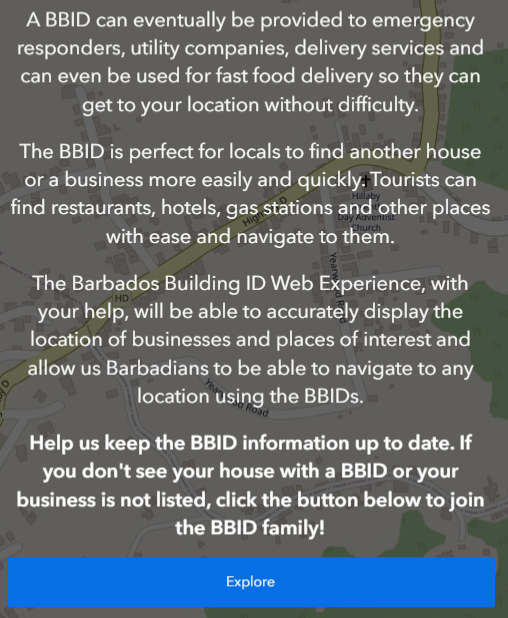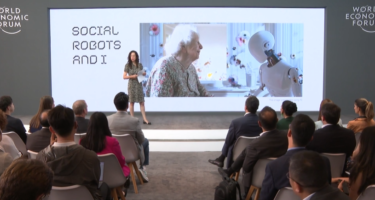What ‘advantages’ will digital ID bring when we’re suddenly faced with another ‘crisis,’ real or perceived? perspective
A panelist from the Barbadian government tells the World Governments Summit that COVID was a “crisis” that gave Barbados an “advantage” in adopting digital ID schemes for not just people, but for buildings as well.
Speaking on Wednesday at the World Governments Summit panel called, “Digital Government: A Dream for Some, a Reality for Others,” Barbados’s Minister of Industry, Innovation, Science, and Technology Marsha Caddle said that COVID was the catalyst that paved the way for digital ID in Barbados, stating:
“Funny enough, the polycrisis that we talk about has given us a bit of an advantage, and it sounds strange to say that a crisis is an advantage, but during COVID, for example, we were able to do some work to make sure that each building has a single building ID to be able to make it easy for public and private businesses to operate”
“Linked to that, each individual also has a new digital ID; we’ve had about 90 percent uptake of the project so far”
According to the Barbadian government geoportal:
“The BBID [Barbados Building Identifier] is perfect for locals to find another house or a business more easily and quickly. Tourists can find restaurants, hotels, gas stations and other places with ease and navigate to them.”
It concludes by encouraging citizens to “join the BBID family” by listing their houses and businesses on the platform.

Moving from digital ID for buildings to digital ID for people, Caddle told the World Governments Summit that being a small country, Barbados had an advantage that allowed it to peg 90 percent of the population to a digital ID, which she described as a “unique footprint” or “persona” that acts as digital “mirror or replica of who you are:”
“Barbados is a country of 267 thousand people, and we think that that gives us an advantage. To be able to have people have a unique footprint and for them to use that footprint to interact with the government, so that essentially you have a persona through your building ID and through your digital ID that allows you to have this online kind of mirror or replica of who you are. In a country that’s that small that gives us tremendous opportunity”
On the issue of the government accessing citizen data via digital ID, Caddle said that trust could be won by showing people when their data is being accessed, by whom, where, and why.
In this way, she believes people will have more confidence in the system.
According to Caddle:
“What we want to allow citizens to be able to do through the digital ID is to able to see, like in Estonia, when does government access your data? For what purpose? Who is it? What time of day? How many times a year? These are the things that we think give people confidence that government isn’t accessing your data for reasons other than why we should”
Would seeing how many times the government accessed your data win over your trust?
In the case of a declared emergency, would the government be able to expand its access into even more of your personal data?
Public and private entities often talk about the citizen or the customer being in control of their data.
As Caddle told the World Governments Summit, “The way that people interact with government every day gives us very rich data sets. That information belongs to them.”
However, if people opt-out of digital ID schemes, they can be denied certain goods or services.
And if people do sign-up for the digital ID and decide not to share their data, then the result would be the same as opting-out of the scheme altogether.
Your data is what governments are after, and indeed, they can use that data to improve things like services and infrastructure.
For example, Caddle spoke about setting up an independent statistics and data analytics authority in order to understand things like which bus routes are taking the longest, or how long people are waiting in line at hospitals
“All of this information, we need to be able to mine properly,” she said.
This may sound good and well during times of stability; however, in times of emergencies governments could grant themselves the power to use digital ID data in draconian ways, such as restricting people’s mobility, limiting access to certain goods and services, or controlling what they can purchase.
And while Caddle spoke about Barbados’s digital ID rollout, she also said:
“The nature of digital transformation is such that there are no borders and there are no boundaries. The world’s progress is only as far as each country’s progress”
This paves the way for digital IDs to become interoperable across the globe. Each country may do theirs a bit differently, but in the end they’d all be connected.
And while many point to COVID as being the accelerator for digital transformation, in the end it was government-mandated lockdowns that accelerated the agenda worldwide.
Sure, you could say it was “because of COVID,” but if you look very closely, it wasn’t COVID that said stay in your homes, don’t go outside, or show your digital papers if you want to participate in society.
Caddle says that COVID was a crisis that gave Barbados an advantage in adopting digital ID.
What “advantages” will digital ID bring when we’re suddenly faced with another “crisis,” real or perceived?












